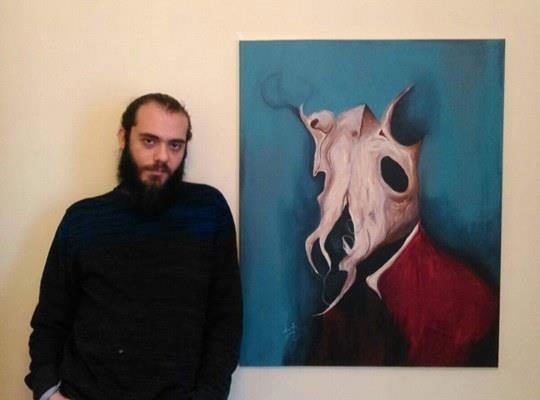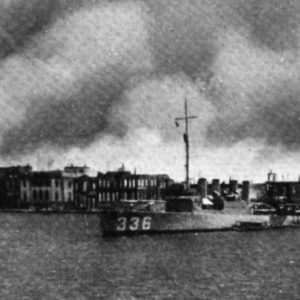From Homs to Lithuania, The New Eastern politics reached through Christiane Waked, to the young and very talented painter, Majd Kara who spoke to our Art and Culture contributor about his paintings, his past, his present and what the future holds for a stranger in “another man’s land”.
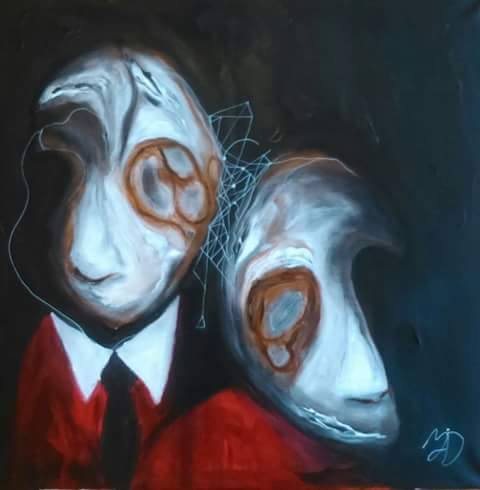
C.W.: Tell us briefly about your background, before you left Syria. What was the special thing that made you interested in art? Who were your early influences?
M.K.: I grew up as a sole child, so to entertain me, instead of giving me a book to read, my mother gave me a pen to write but I preferred to draw. That’s how it started.
In fact, in our society, art is not a good way to make a living and most artists live in poverty. That’s why my family tried to convince me to change my mind. But I couldn’t silence my inner creativity voice and I knew deep inside that art was my salvation.
C.W.: You experienced war and decided to leave Syria, how did this impact your art? Was the trauma sublimated?
M.K.: When the war started, I was observing the situation carefully, trying to do something, anything that can help my society. Of course, as a human, what was going around left deep scars that affected me in my core but my art had already the dark touch so it got darker and more figurative.
C.W.: You are currently living in Lithuania, is this opening your art horizons and in what way?
M.K.: Living in Lithuania, a European country, opened the doors to new opportunities for me. I made two exhibitions and a third one is on the way. It was an opportunity to meet many people and things here are better for me as an artist.
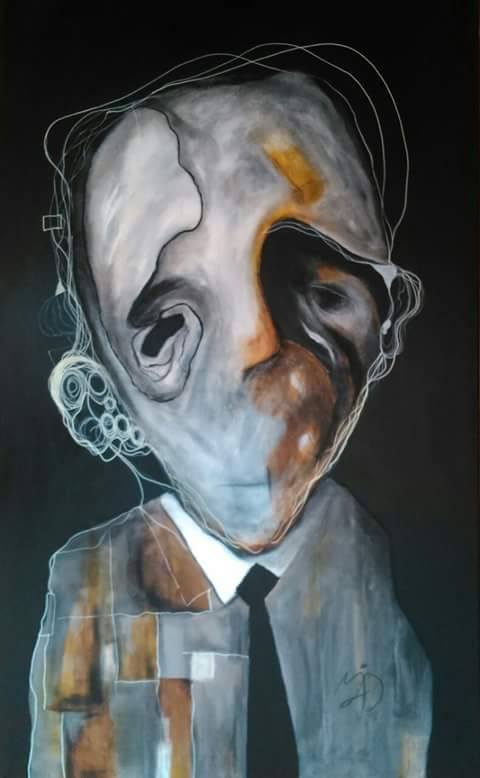
C.W.: Your paintings are very dark, they seem to express a sort of fatalism and we can sense (and I might be mistaken) an Egon Shiele influence. But despite that, we cannot but feel that in your depth you still believe in a way out. Can you explain to us where does this darkness come from?
M.K: Every person has two sides, the good and bad in him ( the yin and the yang), or what you described as the bright and the dark or whatever.
I chose to let my dark feelings come out, I think there is a beauty in the dark things if you let your eyes accept the reality and the illusions, if you let yourself go deep inside the fear and the sickness if you forced your soul to see the other in his pure form.
C.W.: What are the materials that you use?
M.K.: I am using Acrylic and charcoal and some other stuff
C.W.: Who are your current art inspirations? Do you look to other contemporary artist’s work during your artistic process?
M.K.: My inspiration comes from the music I am listening to or the people that I am meeting. Sometimes, talking to them might give me the inspiration that I’m looking for. My art reflects their personalities, observing their actions and reactions. When I paint, I w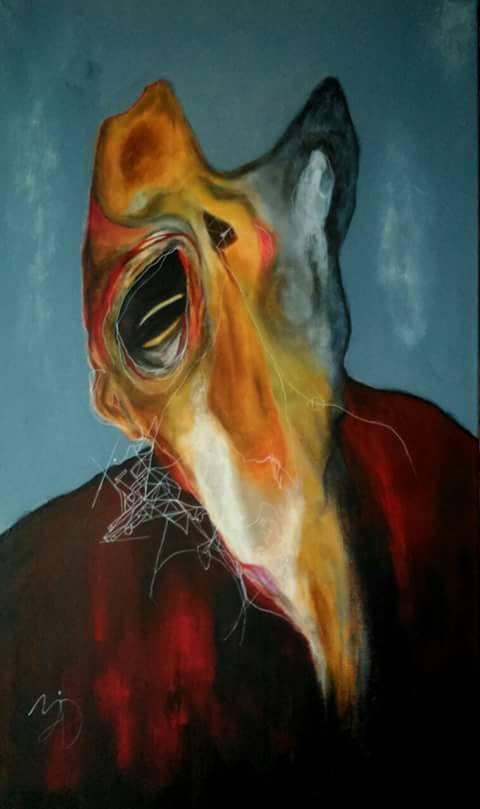 ant to paint souls not faces.
ant to paint souls not faces.
Of course, I’m following other contemporary artist’s work, but not during my artistic process, I like to have a clear and focused mind. Looking to a painting or to any art-work makes me think and wonder because that’s how art works.
C.W.: I refuse to label you as an artist refugee but do you feel labeled?
M.K.: As an artist refugee, I am in Lithuania since one year and trust me I am doing everything in order not to be labeled.
C.W.: Finally, do you still believe that your art can somehow leave an impact?
M.K.: Art is the most powerful weapon. It is in the media, in politics, in the streets. It is everywhere.
It is the salt that gives the taste to life. I don’t know if anyone can imagine life without art, it would be meaningless, tasteless.
Art is the true faith of the mankind, and I’m a believer.
Christiane Waked is a former Press Attaché of the French Embassy to the UAE (2010-2015) also worked as linguist and analyst in the French Interior Ministry (2005-2008)


